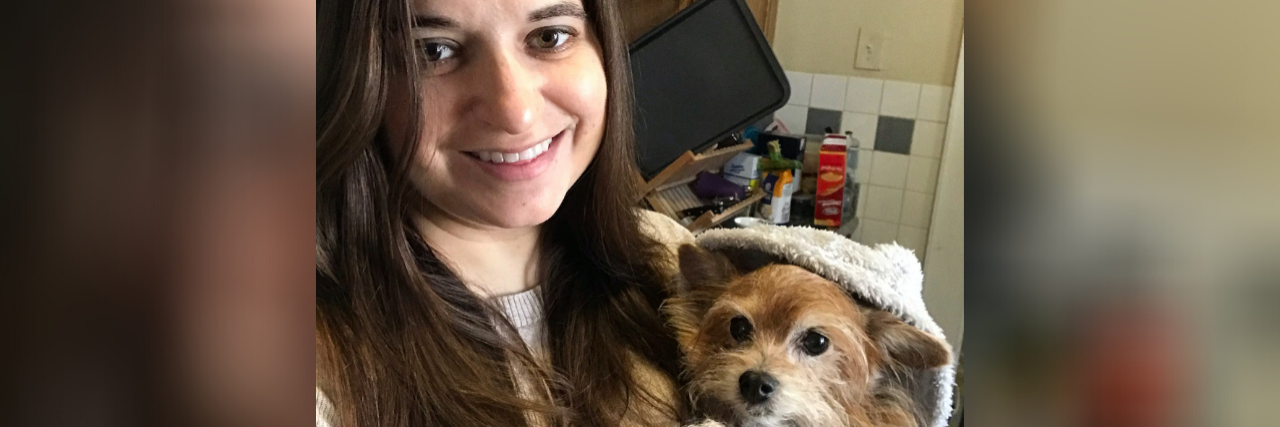When You're a 'Difficult Person' Living With Chronic Pain
I am a difficult person.
• What is Ehlers-Danlos Syndrome?
• What Are Common Ehlers-Danlos Syndrome Symptoms?
…Or so I’ve been told. I am head-strong. I know what I want, and I am not willing to compromise for less than I deserve. I am passionate about my work and helping others. I love deeply and fall hard. And I am also someone who lives with chronic pain.
Throughout my dating career, I have had quite a few volatile relationships. I have trusted before it was warranted, and I have given too much of myself before others have proven that they were ready. I have been accused of being “too emotional, too anxious,” too many times. And it has always been difficult for people I’m dating to understand the emotions that accompany the constant fear of wondering when it will happen next.
When will I wake up and not be able to walk? What happens if I can’t go to work because of it, and then can’t afford the medical treatment? The fear of the unknown is difficult enough in itself, but the fear that manifests with the unknown being your next injury or another two-week bout of nausea, is debilitating. It kept me down for so many of what were supposed to be my “good years” that it has taken me almost as long to understand that the pain is real.
The physical pain I live with manifests in different ways. When you live with something that is difficult to share and explain, it sometimes causes an unhealthy amount of attachment to others. We worry so much that our relationships will fall apart when others “find out the truth” of the condition you live with, that we often invest too soon. It’s a test. If I tell you all of my deepest, darkest secrets and you leave, I will know you couldn’t handle it. The trouble is that it’s a self-fulfilling prophecy. Our own insecurities about our health come off as a dependence on others that really is just a desperate plea for someone to empathize. I don’t want anyone to be sorry or sad or disappointed for me. I just want them to admit that they don’t understand what it’s like but want to provide support and compassion.
I have spent most of my adult life on my own. I have been self-employed since the age of 19 and moved out on my own the same year. I have been living alone for since I graduated college, and I worked three jobs throughout college and beyond to support myself. And when I say “support myself,” understand that I mean also paying for endless doctor’s visits and tests and medications, many of which just lead to less understanding and more doctor’s visits and tests and medications. Supporting myself means giving up 25% of my annual income to medical bills, while often still being in medical debt at the end of the year.
This year, I got a diagnosis. Finally. In my mid-30s, someone was able to tell me that the pain, injuries, anxiety and depression that has gone along with all of it is real. I can stop self-diagnosing myself on WebMD (let’s not go too far) because I have a real condition. That condition is called joint hypermobility syndrome/hypermobile Ehlers Danlos Syndrome.
The tricky part is that there are many overlapping characteristics between the two syndromes and still very much that is unclear about both, so it can be difficult to distinguish between the two. The diagnostic test also involves a series of movements that test your joint flexibility. My doctor couldn’t even test my thumbs or wrists because I have had three surgeries between my two hands that make it physically impossible for me to move those directions anymore. And that’s the point. My joints bend too far. The inflammation is sometimes unbearable, and I am constantly having my ligaments and bones messed with so they can stabilize me and prevent further deterioration. I call myself a bionic woman due to the amount of hardware in my hands, but it’s half of a joke and half reality.
But I am the most mentally healthy I have ever been. I have a great therapist, and I have been on medication for several years. I finally understand that what has been happening to my body since the age of 17 is not my fault. This year, I quit all of my jobs to run my own businesses and give myself the life I needed so I can work from home and take time to rest when I need it. I created a workspace that allows me to take care of myself rather than hope the boss will understand. I can stop relying on other people to provide for me what I couldn’t because I have the strength I need now. It has been hard work getting myself here. But I am happy and functioning and enjoying my life for the first time in a very long time. And that is more than many people with chronic illness can hope for.
I am a difficult person. And I live with difficult problems and difficult solutions to those problems. And I wouldn’t change a damn thing.
Photo by Eddie Kopp on Unsplash

